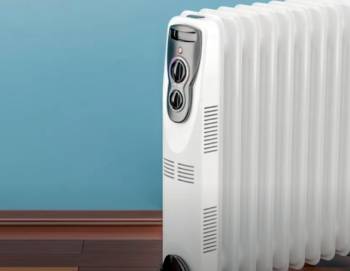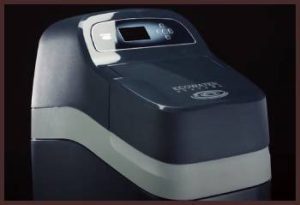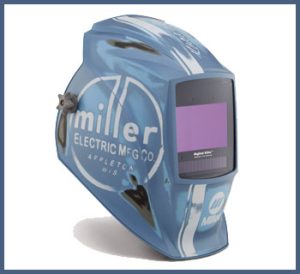As modern homeowners, we have an increasing array of choices to make about our home infrastructure. One such decision is the type of water heater to install – oil or electric.
Let’s dive into the details, evaluate the pros and cons, and simplify your decision-making process.
A Brief Comparison Table
| Feature | Oil Water Heater | Electric Water Heater |
| Heating Power | High (fast heating) | Moderate (slower heating) |
| Initial Cost | High | Low |
| Running Cost | Depends on oil prices | Depends on electricity prices |
| Energy Efficiency | Lower | Higher |
| Environmental Impact | Higher (carbon emissions) | Lower (zero emissions, especially when powered by renewable electricity) |
| Maintenance | More intensive | Less intensive |
| Lifespan | Long (with proper maintenance) | Typically shorter |
| Supply Dependence | Depends on oil supply | Depends on electricity supply |
| Installation | More complex (requires oil storage) | Easier (no additional fuel source needed) |
Please note, the above comparisons can vary based on specific models and local energy prices. Always consult with a professional before making a final decision.
Oil Water Heaters: Strengths and Weaknesses

One traditional option for heating your water is an oil-based system. These heaters can be a powerful solution for your hot water needs.
Advantages of Oil Water Heaters
Superior Heating Power: Oil water heaters are renowned for their heating power. They can heat water faster than most other types, making them ideal for larger households where hot water demand is high. If you find yourself running out of hot water often, an oil water heater might be your solution.
Durability: Oil water heaters tend to have a longer lifespan than their electric counterparts when properly maintained. This durability means less frequent replacement, which could offset the initial cost over time.
Drawbacks of Oil Water Heaters
Higher Initial Cost: Oil water heaters usually have a higher upfront cost than electric ones. Plus, you’ll need to consider the cost of oil delivery and storage.
Dependence on Oil Supply: Unlike electric heaters that tap into the ubiquitous electric grid, oil heaters depend on a steady supply of oil. Any disruptions in the oil supply chain can leave you without hot water.
Environmental Concerns: Oil water heaters generate carbon emissions, which contribute to global warming. This is a serious drawback for environmentally-conscious homeowners.
Read More: About Heat Hog Vs. Mr. Heater
Electric Water Heaters: Pros and Cons
Electric water heaters have gained popularity due to their convenience and cost-effectiveness. Let’s unpack their strengths and weaknesses.

Benefits of Electric Water Heaters
Lower Installation Cost: Electric water heaters typically cost less to install. They don’t require an external fuel source, so you won’t have to worry about oil storage or delivery.
Energy Efficiency: Electric heaters are generally more efficient than oil-based systems. They convert almost all the electricity they use into heat, minimizing energy wastage.
Eco-friendly: Unlike oil water heaters, electric heaters don’t produce harmful emissions. When powered by renewable electricity, they can be a greener choice.
Limitations of Electric Water Heaters
Slower Heating Rate: Electric heaters tend to heat water more slowly than oil heaters. This may not be an issue for smaller households, but larger families might experience a shortage of hot water.
Dependence on Electricity: While most areas have reliable electricity, power outages can leave you without hot water. In areas with frequent power cuts, this is a significant downside.
Frequently Asked Questions (FAQs)
Heating hot water with electricity is generally cheaper due to higher energy efficiency and lower installation costs. However, this can depend on local electricity and oil prices.
Yes, oil water heaters tend to be more expensive upfront than electric models. However, their durability can offset this cost over time.
While oil water heaters are excellent at heating water quickly, they are generally less energy-efficient than electric models.
Yes, it’s possible to switch from an oil water heater to an electric one. However, it will involve replacing the entire unit, which can be costly.
Generally, electric heaters are cheaper to install and run than oil heaters, although this can vary based on local energy costs.
The main disadvantages of heating oil include higher initial costs, dependence on oil supply, and environmental concerns due to carbon emissions.
Making the Right Choice: Oil or Electric?
In the end, the choice between oil and electric water heaters depends on your personal circumstances. Consider factors like your budget, hot water demand, environmental preferences, and local energy prices before making a decision.
Read More: About Rheem Vs. AO Smith Hybrid Water Heaters
Conclusion: Oil vs Electric Water Heater
Both oil and electric water heaters have their strengths and weaknesses. Oil heaters are powerful and durable but come with a higher initial cost and environmental concerns. Electric heaters are cost-effective and eco-friendly but may not meet the hot water demands of larger households.
In a world increasingly mindful of environmental sustainability, electric water heaters are gaining favor. Still, oil heaters hold a crucial place, particularly in areas where electricity supply is unstable. Take a hard look at your needs, your priorities, and your resources, then make an informed choice.
Remember, what works for one household might not work for another. It’s all about finding the balance between performance, cost, and environmental impact that works best for your situation. With the detailed information provided, you’re now better equipped to make an informed choice on the “oil vs electric water heater” debate. Happy decision-making!



